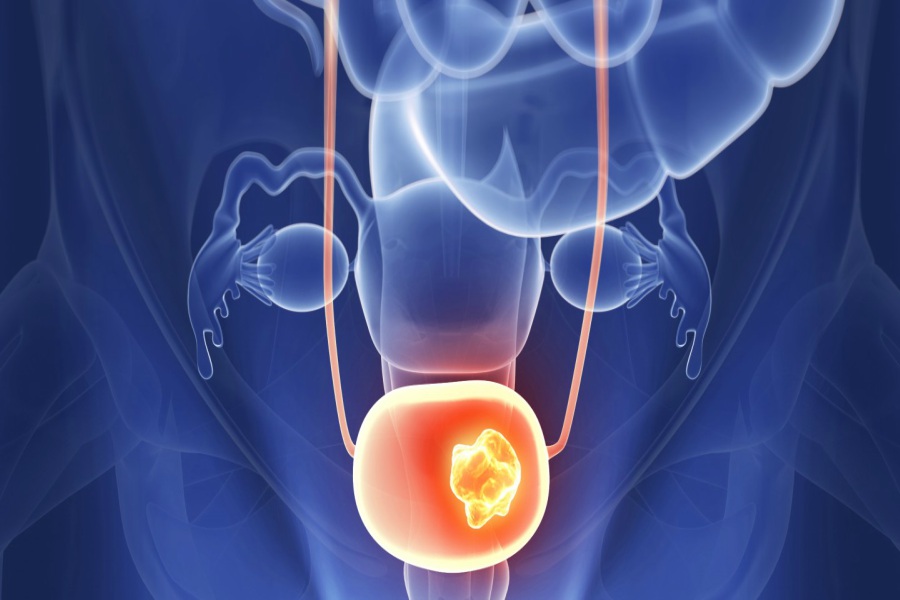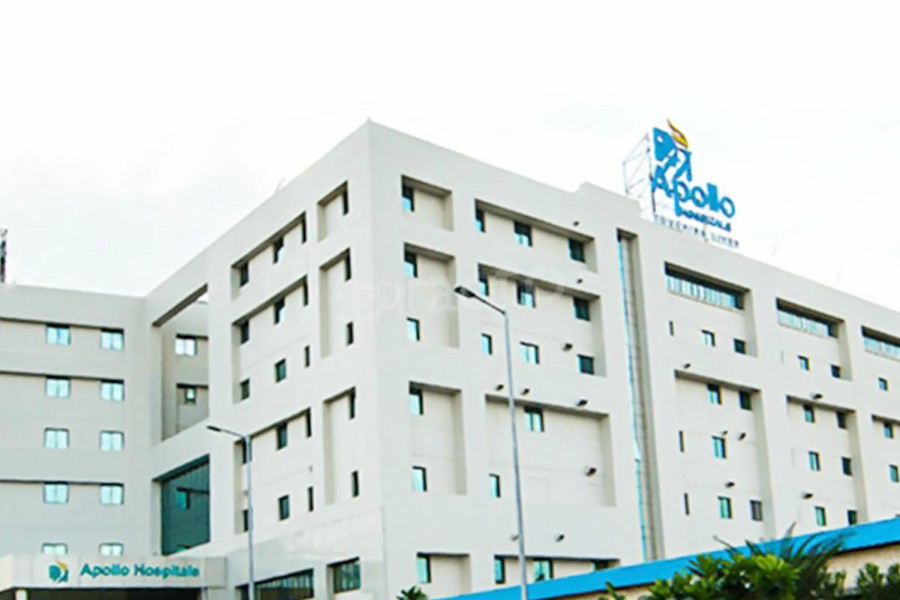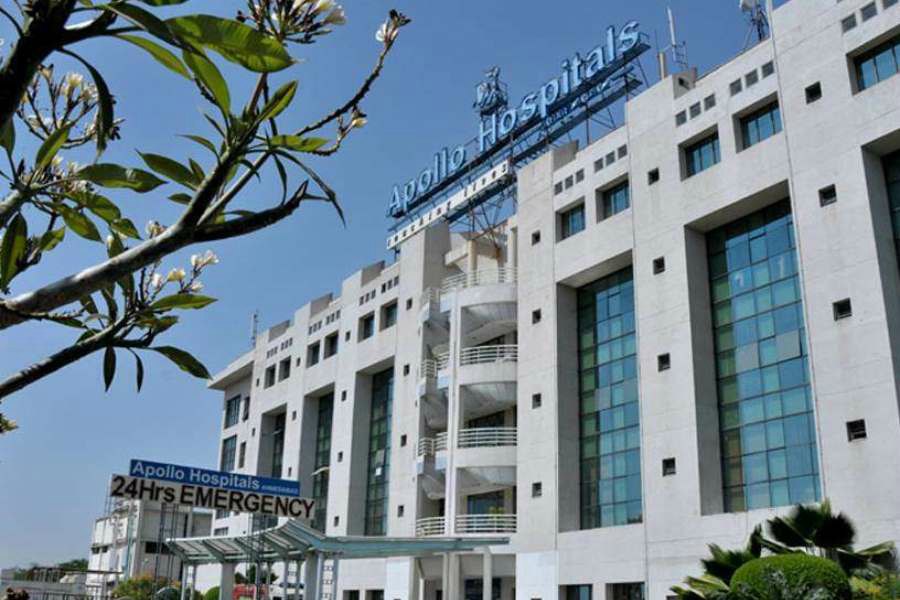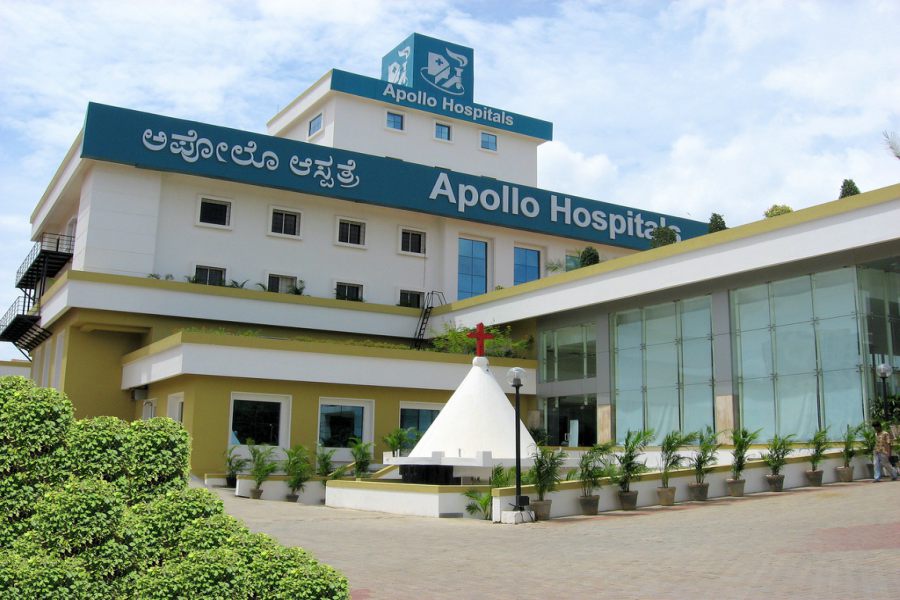
Overview
Bladder cancer is a common cancer in adults; more common in males than in females. It begins in the cells lining inside the bladder (the organ that stores urine). If diagnosed early, it can be cured completely. However, there are chances that early-stage bladder cancer may re-occur.
Based on the type of cells where the cancer is started, bladder cancer can be of the following types:
- Urothelial carcinoma (transitional cell carcinoma): The most common type of bladder cancer. This type of cancer begins in the cells lining the insides ofthe bladder (urothelial cells).
- Squamous cell carcinoma: The cancer begins in the thin flat cells (squamous cells) that may be formed after long-term irritation or infection in the bladder. This type is less common but more aggressive form.
- Adenocarcinoma: The cancer begins in the cells that form the mucus-secreting glands in the bladder. It is a rare form of bladder cancer.
Causes
Healthy or normal cells when start growing uncontrollably leads to tumour formation, which ultimately results in cancer. Through the process of metastasis, cancer may invade the tissues and spread to other parts of the body. The exact cause for this condition is yet undiscovered. Certain factors may increase the risk of bladder cancer, such as:
- Use of tobacco and smoking
- History of radiation exposure
- Exposure to chemicals like dyes, arsenic, and arylamines at workplace
- Bladder infection
- long-term irritation in the lining of the bladder
- Symptoms of bladder cancer
SYMPTOMS
The most common and initial symptom of bladder cancer are blood in urine. But sometimes it is difficult to notice this symptom, as the blood may come and go, or it may turn the urine to dark brown color.
Some other symptoms may be noticed in the initial stages, such as:
- Urgency to urinate
- Increased frequency of urination
- Burning or pain sensation during micturition
In advance stage of cancer, it may show the following symptoms:
-
Pelvic pain
-
Swelling of the legs
-
Bone pain
-
Lower back pain
-
Unintentional blood loss
-
Bladder cancer is mostly likely to spread to bone, liver or lungs. If they spread to any of these regions it may show some related symptoms.
DIAGNOSIS
Initially, a physical examination is done to evaluate the symptoms. The information about the past medical history, habits and occupations history is obtained to find the cause of cancer.
Further, some diagnostic tests are performed to determine bladder cancer. The tests may include:
- Urine cytology: In this test, urine sample is taken and examined under the microscope to detect the presence of cancer cells.
- Cystoscopy: In this test, a cystoscope (small narrow tube with a camera and light source) is inserted through the urethra. The cystoscope helps to see inside the urethra and bladder and evaluate any signs of disease.
- Biopsy: This test is usually done at the time of cystoscopy. A special instrument is inserted in the bladder through the scope to collect cell sample for testing it under the microscope.
- Imaging tests: Tests like CT scan, Intravenous pyelogram, MRI scan, PET scan, Bone scan, X-ray and CT urogram may be performed to evaluate the structure of the urinary tract. These tests also aid in determining the extent of bladder damage.
Stages of bladder cancer
- Stage 1: In this stage, the cancer begins to grow in the connective tissue under the bladder lining.
- Stage 2: In this stage, the cancer grow through the connective tissue and spread upto the muscles of the bladder wall.
- Stage 3: In this stage, the cancer grow through the muscle and spread into the fat layer. The cancer may also spread outside the bladder and reach up to the womb, vagina or prostate gland.
- Stage 4: In this stage, the cancer spread to the wall of the pelvis or abdomen, other parts of the body or the lymph nodes. The cancer may also reach to the bones, liver or lungs.
RISK FACTORS
Risks of surgery
The risks of cystectomy may include:
- Bleeding
- Infection
- Blood clots in the lungs or legs
- Damage to a near organ
- Reaction to anaesthesia
- Erectile dysfunction in men
POST-OPERATIVE CARE
After the treatment, you need to get follow-up tests done as there are high chances of recurrence. Depending on the risk of the recurrence, your care team will tell you the time interval when the tests are to be performed.
TREATMENT
There are various treatment options for treating bladder cancer, such as:
Surgery: Different types of surgeries are performed to remove the cancerous tissue. The types of surgery are:
- Transurethral resection of bladder tumour (TURBT): In this procedure, the bladder cancer limited to the inner layers of the bladder are removed. This procedure is performed under regional anaesthesia (the lower part of the body is anaesthetized). A small wire loop is inserted into the bladder through a cystoscope. Then an electric current is passed in the wire loop, which burns the cancer cells. Sometimes, a high-energy laser may also be used to destroy the cancer cells. Aftet this procedure, you may be asked to undergo one session of chemotherapy to destroy the remaining cancer cells and prevent recurrence.
- Cystectomy: The removal of the parts of the bladder is known as cystectomy. It can be of two types; radical and partial cystectomy.
In radical cystectomy,all part of the bladder, surrounding lymph nodes and part of the ureters are removed. During radical cystectomy, uterus, part of the vagina and ovaries are also removed in women and seminal and prostate vesicles are also removed in men. It can be performed by making a single incision or multiple small incisions (via robotic surgery) on the lower abdomen.
In cases where the cancer is confined to one area and can be removed without affecting the bladder function, partial cystectomy is done.
After radical cystectomy, reconstructive surgery is done to create a urinary diversion for urine to leave the body. The various type of reconstructive surgery is neobladder reconstructive, continent urinary reservoir, and Ileal conduit.
Chemotherapy
Specific drugs are used to kill cancer cells. For bladder cancer, the chemotherapy drug can be given intravenously (through a vein in the arm) or through intravesical therapy (drug passed through the urethra directly to the bladder). Chemotherapy may be given before or after surgery. Sometimes, as an alternative to surgery, chemotherapy can be given with or without radiation therapy.
Radiation therapy
In this treatment, high-energy beams are used to destroy the cancer cells. Radiation therapy for bladder cancer is usually delivered from an external beam source.
Radiation therapy can be given as an adjuvant to surgery, either alone or with chemotehrapy. In some cases, when surgery cannot be performed to remove cancer, radiation therapy may be given along with chemotherapy.
Immunotherapy
In this method, the immune system of the body is prepared to fight against the cancer cells. Either natural or artifical cells are injected in the body to boost the immune system and destroy the cancer cells.
Duration of the treatment
The surgery performed to remove bladder cancer usually takes 15 to 90 minutes. Sometimes a session of chemotherapy may be given within 6 hours after the surgery. In case of bladder preservation approach, maximum resection of the bladder tumor is done by TURBT, and then the course of chemotherapy and radiation therapy is given for 4-5 weeks. Immunotherapy may be given for nearly one year.
However, the duration of the treatment cycles may vary depending on the type and stage of the cancer.
FACTORS AFFECTING COST
Cancer treatment remains unaffordable for several people throughout the world. The cost of cancer treatment is very high when compared with the treatment for other diseases.
The average cost of bladder cancer treatment depends on various factors, such as:
- Location of the hospital
- Type of hospital
- Doctor’s fee
- Type and stage of cancer
- Length of treatment
- Any procedure
- Type of surgery, which includes operating room per-hour cost, type of anaesthesia, hospital stay
- Type of medicines used based on pharmaceutical brands
- Health insurance covered
- Current medical reports
- Follow up visit cost


 Best Hospitals
Best Hospitals












